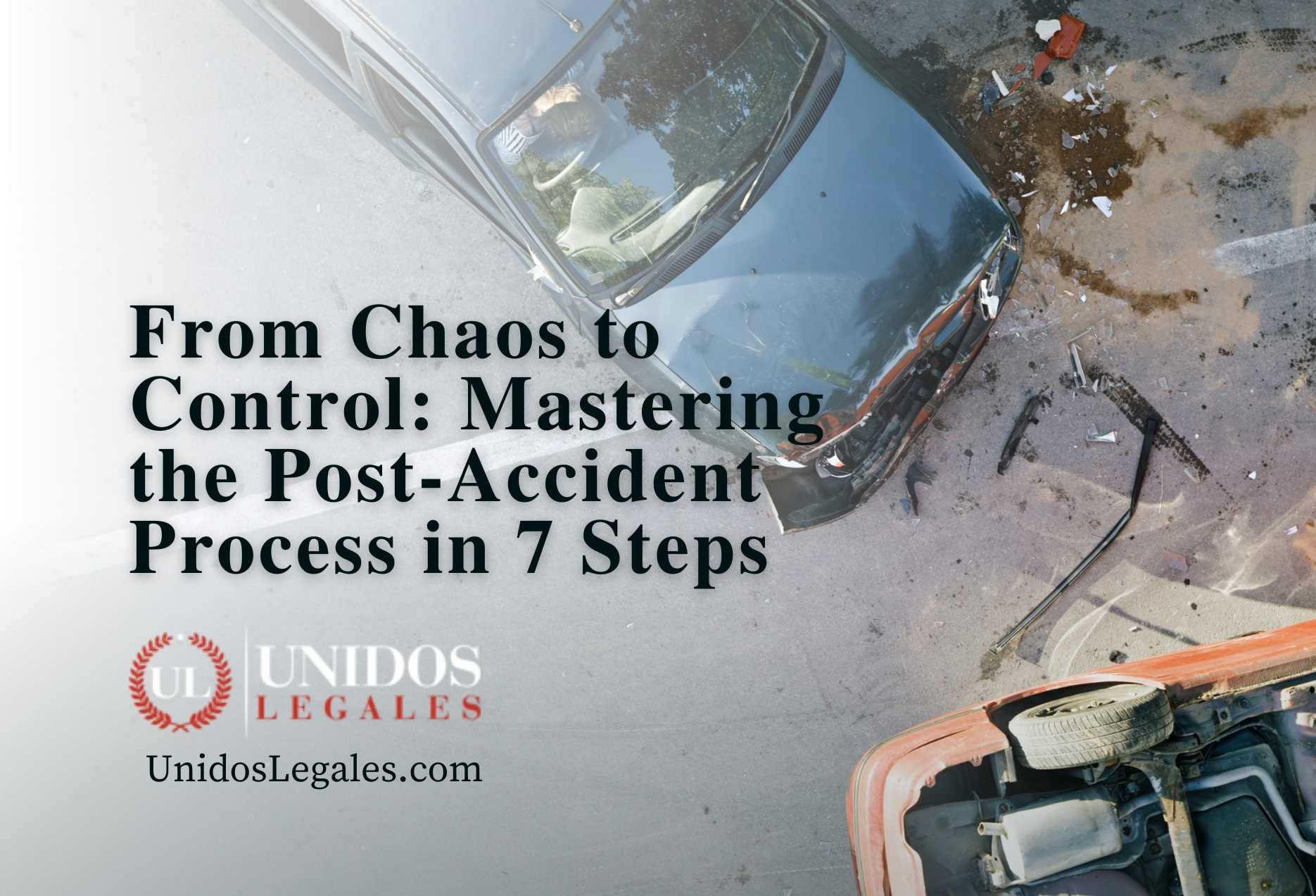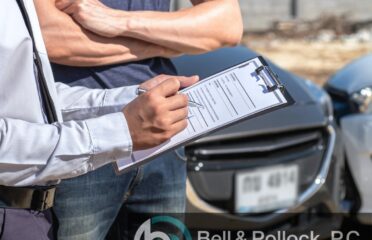A car accident can be a traumatic experience, but it’s important to stay calm and take immediate action. By following the right steps, you can ensure your safety, protect your legal rights, and efficiently handle the aftermath of the accident. Here are the seven main steps to take after a car accident:
1. Ensure Safety:
The first priority after a car accident is to ensure the safety of yourself and others involved. Move your vehicle to a safe location if possible, turn on hazard lights, and set up warning triangles or flares to alert other drivers. Check for injuries and call emergency services if medical attention is needed.
2. Contact the Authorities:
Regardless of the accident’s severity, it’s crucial to contact the police and report the incident. The police will document the accident, gather information from all parties involved, and provide an official report. This report can be valuable when filing an insurance claim or seeking legal action later on.
3. Gather Information:
Collect as much information as possible about the accident. Exchange contact and insurance details with the other drivers involved. Also, note down the names of witnesses, their contact information, and any other relevant details such as license plate numbers, vehicle descriptions, and the location of the accident. Use your smartphone to take photos of the accident scene, vehicle damage, and any visible injuries.
4. Notify Your Insurance Company:
Promptly notify your insurance company about the accident. Provide them with accurate details and cooperate fully during the claims process. Remember that it’s essential to report the incident even if you believe you were not at fault. Your insurance company will guide you through the necessary steps and help you understand your coverage.
5. Seek Medical Attention:
Even if you feel fine immediately after the accident, it’s crucial to seek medical attention. Some injuries may not be apparent right away, and a medical professional can properly evaluate your condition. Delaying medical treatment can harm your health and weaken your personal injury claim if you decide to pursue one.
6. Document Everything:
Maintain a detailed record of all accident-related expenses, including medical bills, vehicle repair costs, and any other financial losses. Keep track of your medical treatments, appointments, and prescriptions. Additionally, document any pain, discomfort, or emotional distress you experience as a result of the accident. These records will support your claim for compensation later on.
7. Consult with an Attorney:
After a car accident, it is highly recommended to consult with an experienced personal injury attorney. While not every accident requires legal representation, seeking the advice of an attorney can provide invaluable guidance and support throughout the claims process. Here’s why consulting with an attorney is crucial:
- Legal Expertise: Personal injury attorneys specialize in handling car accident cases. They possess in-depth knowledge of the applicable laws, regulations, and legal precedents that pertain to your situation. Their expertise allows them to assess the strength of your case, identify potential legal issues, and develop a strategic approach to maximize your chances of obtaining fair compensation.
- Protection of Legal Rights: Insurance companies have teams of skilled adjusters and lawyers who work to minimize their liability and settle claims for as little as possible. Having an attorney by your side ensures that your rights are protected. Your attorney will advocate for your best interests, handle all communication with the insurance company, and negotiate on your behalf to secure a fair settlement.
- Evidence Gathering and Investigation: Building a strong case requires thorough investigation and collection of evidence. Attorneys have the resources and contacts to gather crucial evidence, such as accident reports, witness statements, photographs, medical records, and expert opinions. They will analyze the evidence, reconstruct the accident if necessary, and determine liability to build a compelling case on your behalf.
- Accurate Evaluation of Damages: Determining the true extent of your damages can be complex. An attorney will assess your medical records, consult with healthcare professionals, and consider long-term consequences of the accident to accurately evaluate your damages. This includes medical expenses, lost wages, pain and suffering, rehabilitation costs, and any other applicable losses. They will ensure that you pursue fair compensation that covers the full extent of your injuries.
- Negotiation and Litigation: Insurance companies may attempt to settle your claim quickly, often offering inadequate compensation. A skilled attorney knows how to negotiate effectively and will not settle for less than what you deserve. If negotiations fail to produce a satisfactory outcome, your attorney can take your case to court and represent your interests before a judge and jury.
- Reduced Stress: Dealing with the aftermath of a car accident can be overwhelming, especially when you are trying to recover physically and emotionally. By entrusting your case to an attorney, you can alleviate the stress associated with legal proceedings. Your attorney will handle all legal aspects, keep you informed, and provide the support you need during this challenging time.
Experiencing a car accident is a challenging situation, but by following these seven main steps, you can effectively handle the aftermath. Prioritize safety, gather information, report the accident, seek medical attention, document everything, notify your insurance company, and consider consulting with a personal injury attorney. Taking these steps will ensure your well-being, protect your legal rights, and increase your chances of obtaining the compensation you deserve.














